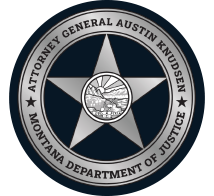HELENA – Attorney General Austin Knudsen announced today that Montana will receive $80 million in the final approval of the multi-state settlement holding the nation’s three major pharmaceutical distributors – Cardinal, McKesson, and AmerisourceBergen – and Johnson & Johnson accountable for their roles in fueling the national opioid epidemic and the harm it has caused.
The settlement money will be used for opioid abatement which could include programs like opioid use disorder treatment, providing Narcan to emergency or first responders, and drug treatment courts for defendants with opioid-related substance abuse problems or histories.
“The opioid epidemic is destroying communities and ruining lives which is why I’m committed to addressing the problem and holding those responsible for this crisis accountable,” Attorney General Knudsen said. “Opioid overdoses have killed hundreds of Montanans and thousands more struggle with addiction. The millions of dollars we secured in this settlement will help us save lives and treat those who need help.”
Montana’s settlement was maximized after the Department of Justice secured participation in the agreement from all 56 counties and six eligible cities – Billings, Bozeman, Great Falls, Helena, Kalispell, and Missoula. Local subdivisions will receive 15 percent of the settlement and may receive additional funding from the settlement abatement fund that comprises 70 percent. The remaining revenue will go to the state.
In total, $26 billion from the multi-state settlement will be distributed to 52 states and territories to combat the opioid crisis.
In addition to the funds, Cardinal, McKesson, and AmerisourceBergen will:
- Establish a centralized independent clearinghouse to provide all three distributors and state regulators with aggregated data and analytics about where drugs are going and how often, eliminating blind spots in the current systems used by distributors;
- Use data-driven systems to detect suspicious opioid orders from customer pharmacies;
- Terminate customer pharmacies’ ability to receive shipments, and report those companies to state regulators, when they show certain signs of diversion;
- Prohibit shipping of and report suspicious opioid orders;
- Prohibit sales staff from influencing decisions related to identifying suspicious opioid orders; and
- Require senior corporate officials to engage in regular oversight of anti-diversion efforts.
Johnson & Johnson is required to:
- Stop selling opioids;
- Not fund or provide grants to third parties for promoting opioids;
- Not lobby on activities related to opioids; and
- Share clinical trial data under the Yale University Open Data Access Project.
Following successful state sign-on and subdivision sign-on periods, the defendants will start releasing funds to a national administrator on April 2, 2022. Money will start flowing to state and local governments in the second quarter of 2022. This is the second largest multistate agreement in U.S. history, second only to the Tobacco Master Settlement Agreement.
Attorney General Knudsen has been combatting the opioid crisis in Montana since taking office. Last year, he and a coalition of other attorneys general finalized a $573 million settlement with McKinsey & Company that brought $1.9 million to Montana and helped fund drug treatment courts. Knudsen also joined other attorneys general in pushing federal regulators to examine recent progress in their fight against opioid abuse to help reduce prescription abuse and accidental deaths.
